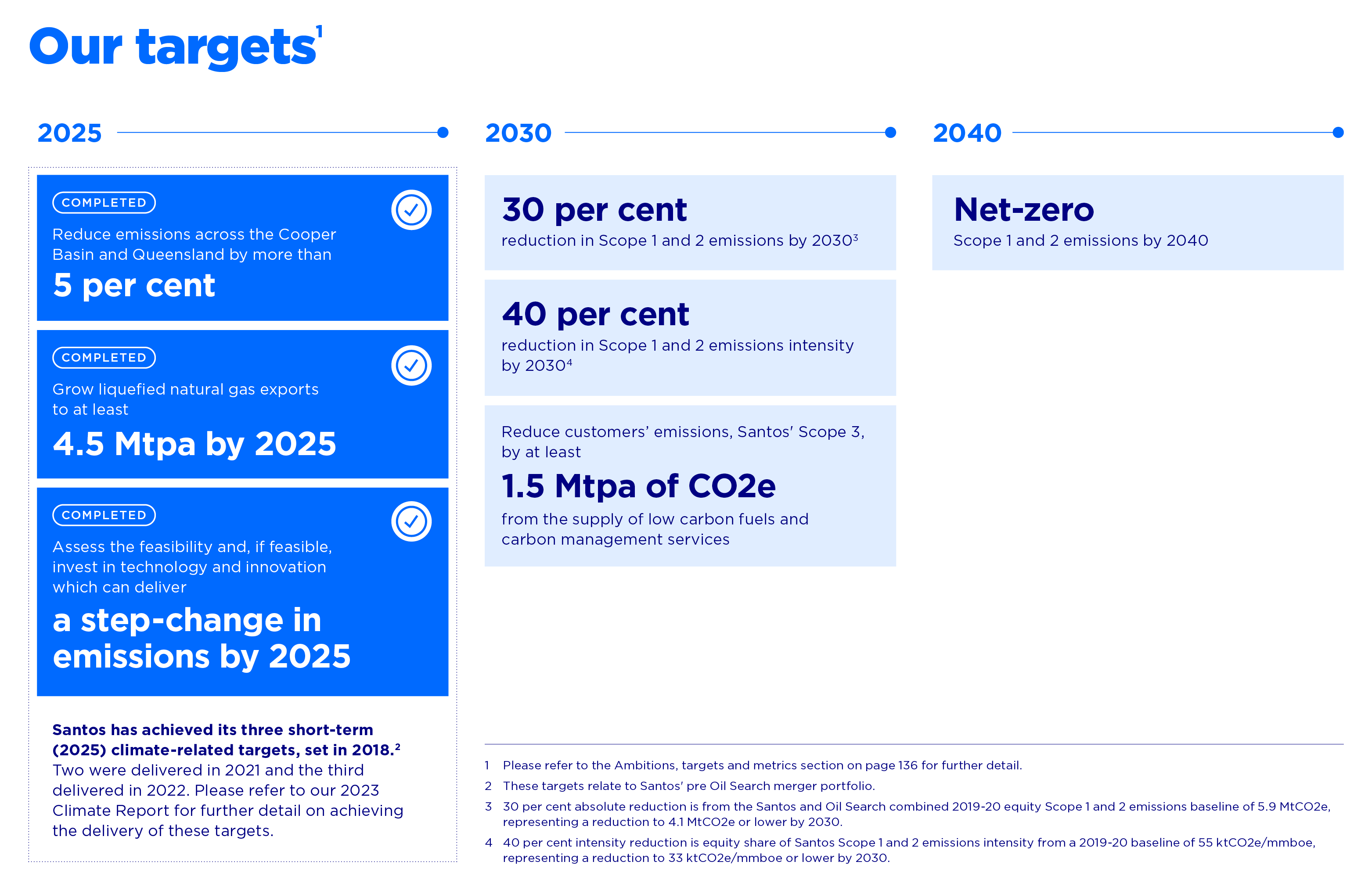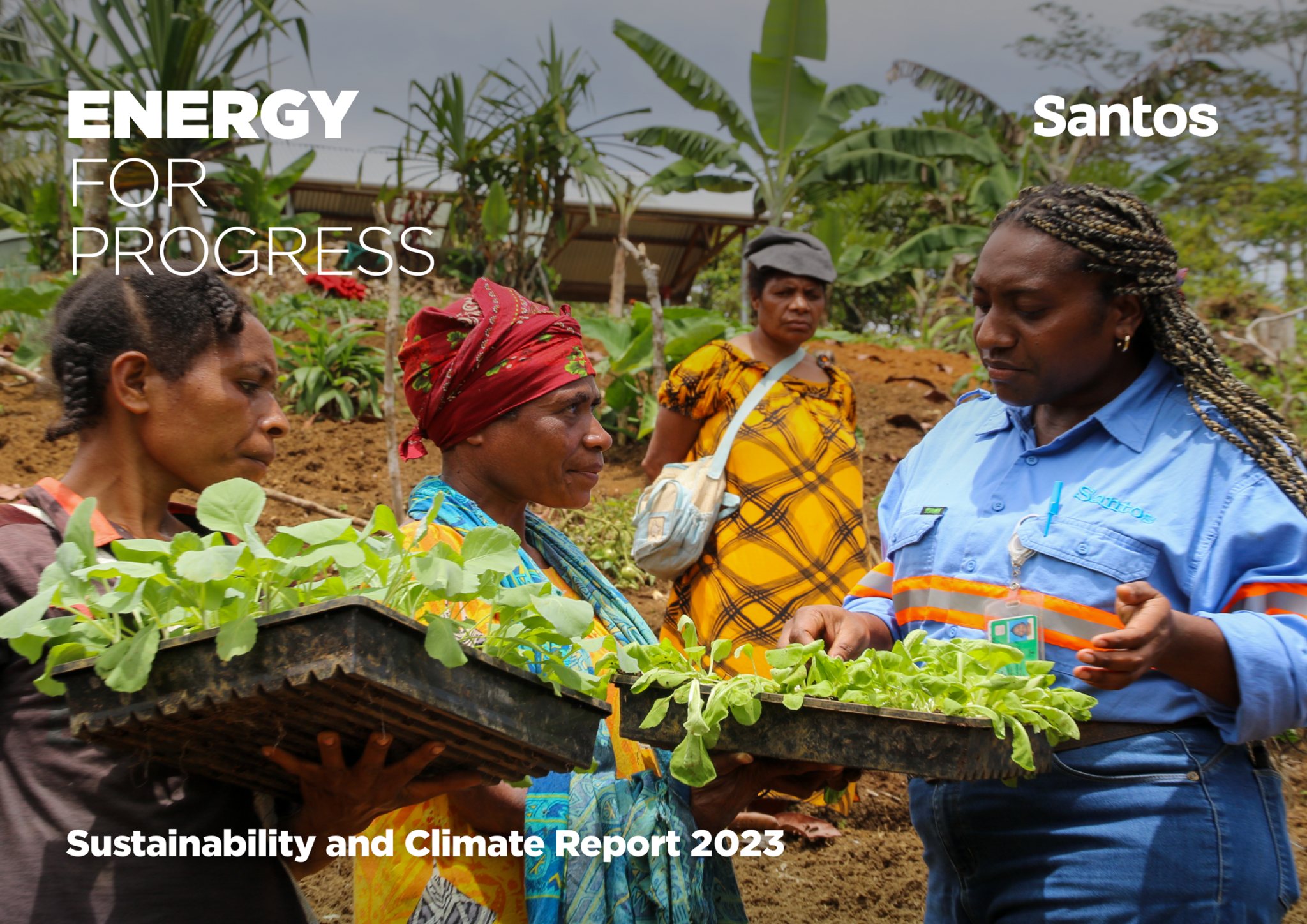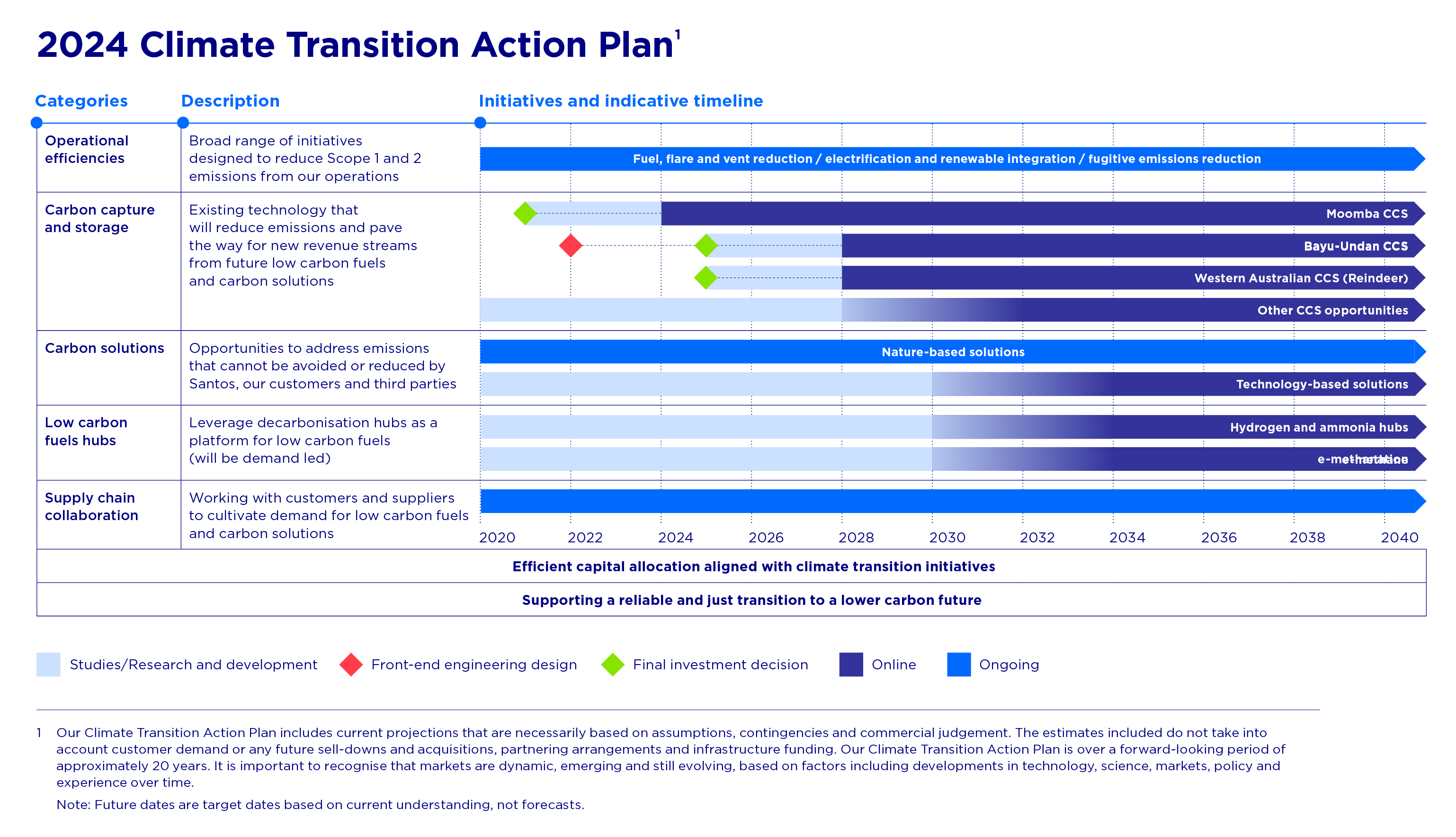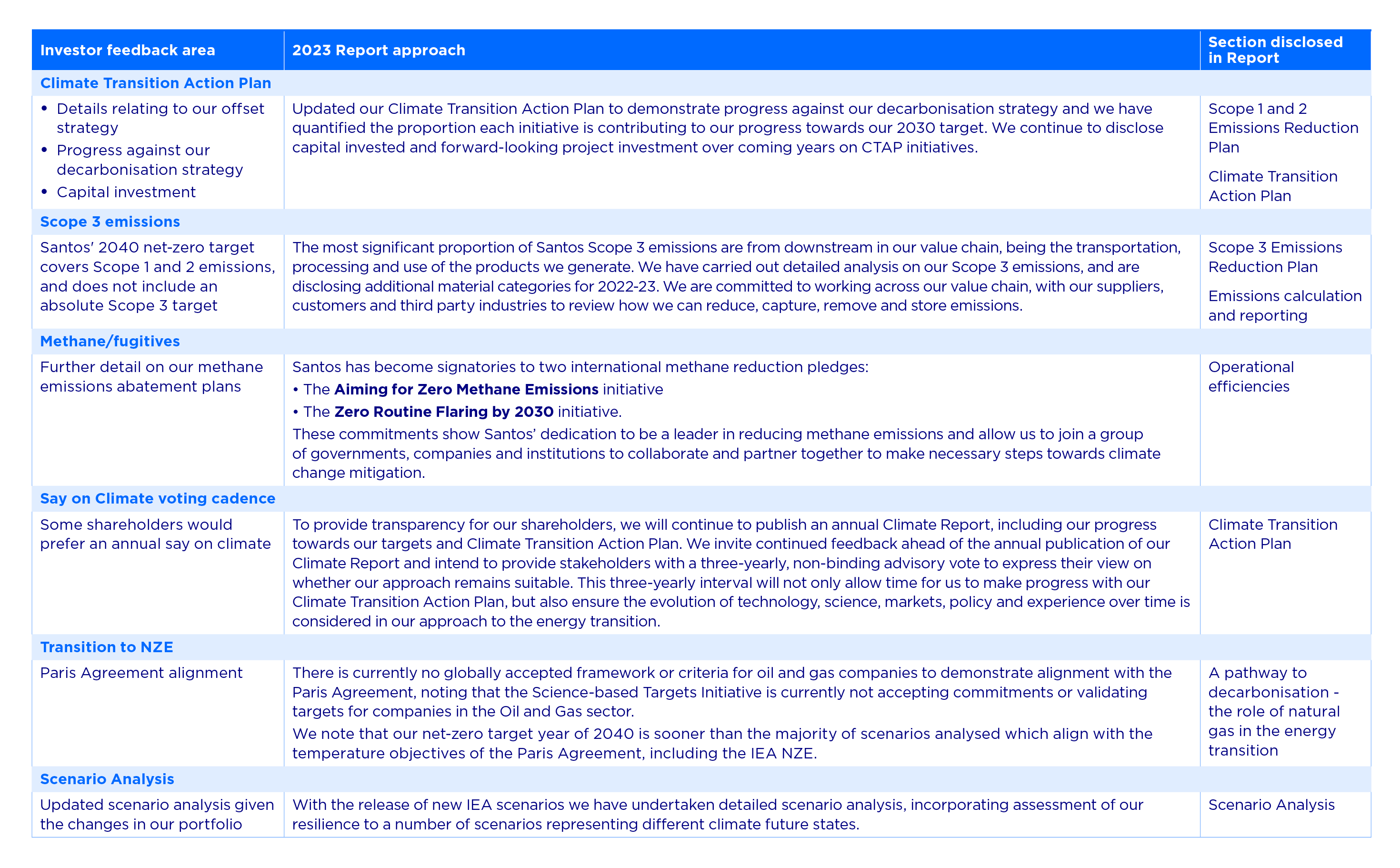Our Corporate Strategy
Santos has a clear strategy that is focused on backfilling and sustaining existing infrastructure, decarbonising operations and investing in the technologies needed to develop the low carbon fuels of the future.
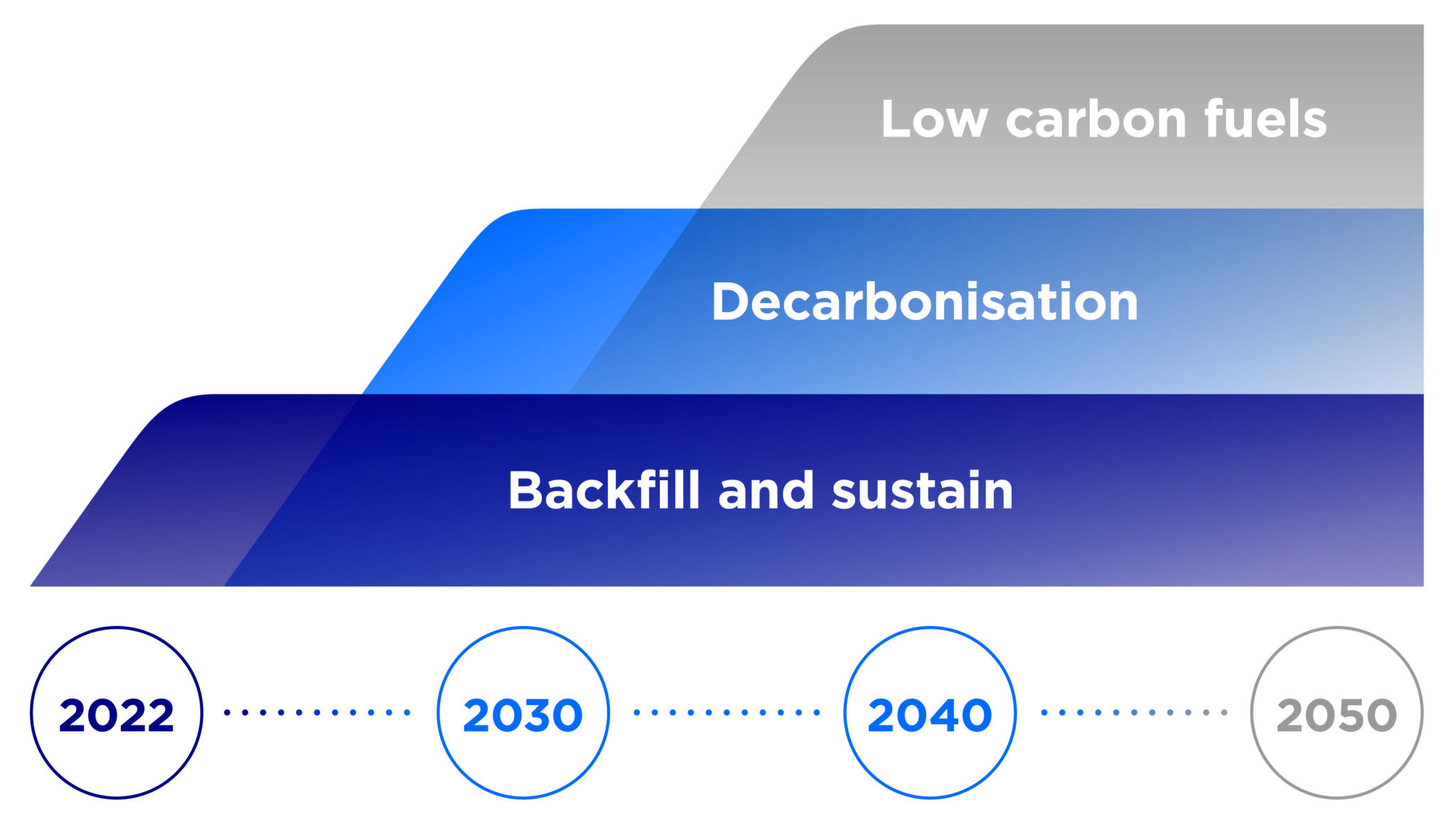
- Clear Strategic Focus: Santos has a well defined strategy centered on backfilling and sustaining existing infrastructure, decarbonising operations and investing in technologies for future low carbon fuels
- Decarbonisation Initiatives: Santos Energy Solutions (SES) plays a pivotal role in the company’s long-term decarbonisation strategy, focusing on carbon capture and storage projects, operational efficiency and investments in emerging technologies to supply low carbon fuels
- Financial Commitment to Climate Action: Santos is committed to climate action, evidenced by a significant investment of approximately $170 million in 2023 on our Climate Transition Action Plan (CTAP) initiatives, with a potential for up to $5 billion in energy efficiency, decarbonisation, low carbon fuels and nature-based offset projects over the next decade
- Critical Role of CCS in Achieving Net Zero: Carbon Capture and Storage (CCS) is identified as a key pillar for decarbonisation, with the technology considered mature and commercially available. The IEA emphasizes the necessity of CCS in capturing a significant amount of CO2 by 2030 and 2050 to achieve Net Zero emissions, reflecting a growing global momentum for CCS projects.
Our strategy is to strike the optimal balance between disciplined and phased major project spend to meet global energy demand and investment in new energy solutions aligned with the energy transition to meet customer demand.
2023 performance highlights

Reporting our progress
Since 2018, Santos has published annual climate change reports that align with the recommendations of the G20’s Task Force on Climate-related Financial Disclosures (TCFD). The latest 2023 Sustainability and Climate Report outlines Santos’ climate transition strategy and action plan.
Climate Transition Action Plan
Our Climate Transition Action Plan (CTAP) outlines the decarbonisation initiatives that provide a potential pathway Santos is currently following to achieve our, and our customers’, emission reduction targets. It also provides a pathway to progressively develop and deliver lower carbon energy and low carbon fuels in the future.
The CTAP is underpinned by Santos’ three-horizon strategy: backfill and sustain, decarbonisation, and low carbon fuels. Santos will continue to evolve our CTAP to incorporate changes in the global energy transition environment.
Scope 1 and 2 emissions
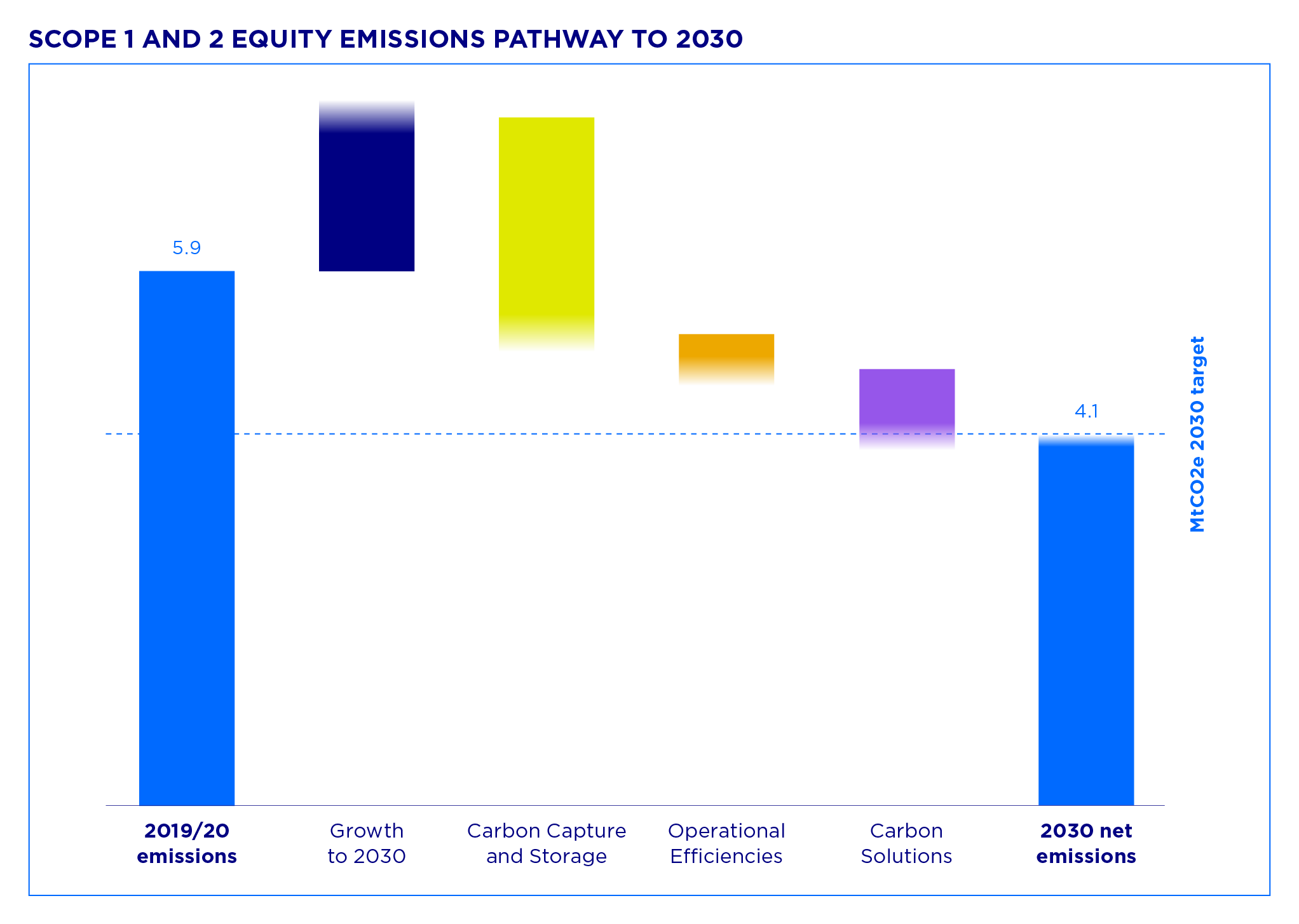
Santos is making strong progress towards our target of reducing its Scope 1 and 2 emissions by 30 per cent by 2030.
This will drive progress to achieve our target of net zero Scope 1 and 2 emissions by 2040.
Scope 3
Santos’ Scope 3 emissions relate to the indirect emissions throughout our supply chain. We are committed to working with our suppliers and customers to reduce their emissions.
The analysis of Scope 3 emissions undertaken during 2023 has enabled Santos to define a plan to address our Scope 3 emissions.
This is a multi-faceted plan which reflects the diversity of sources of Scope 3 emissions identified in the analysis. We expect this plan to evolve over time with improvements in data availability, and as we continue to collaborate with our suppliers and customers on ways we can support them to reduce their emissions.
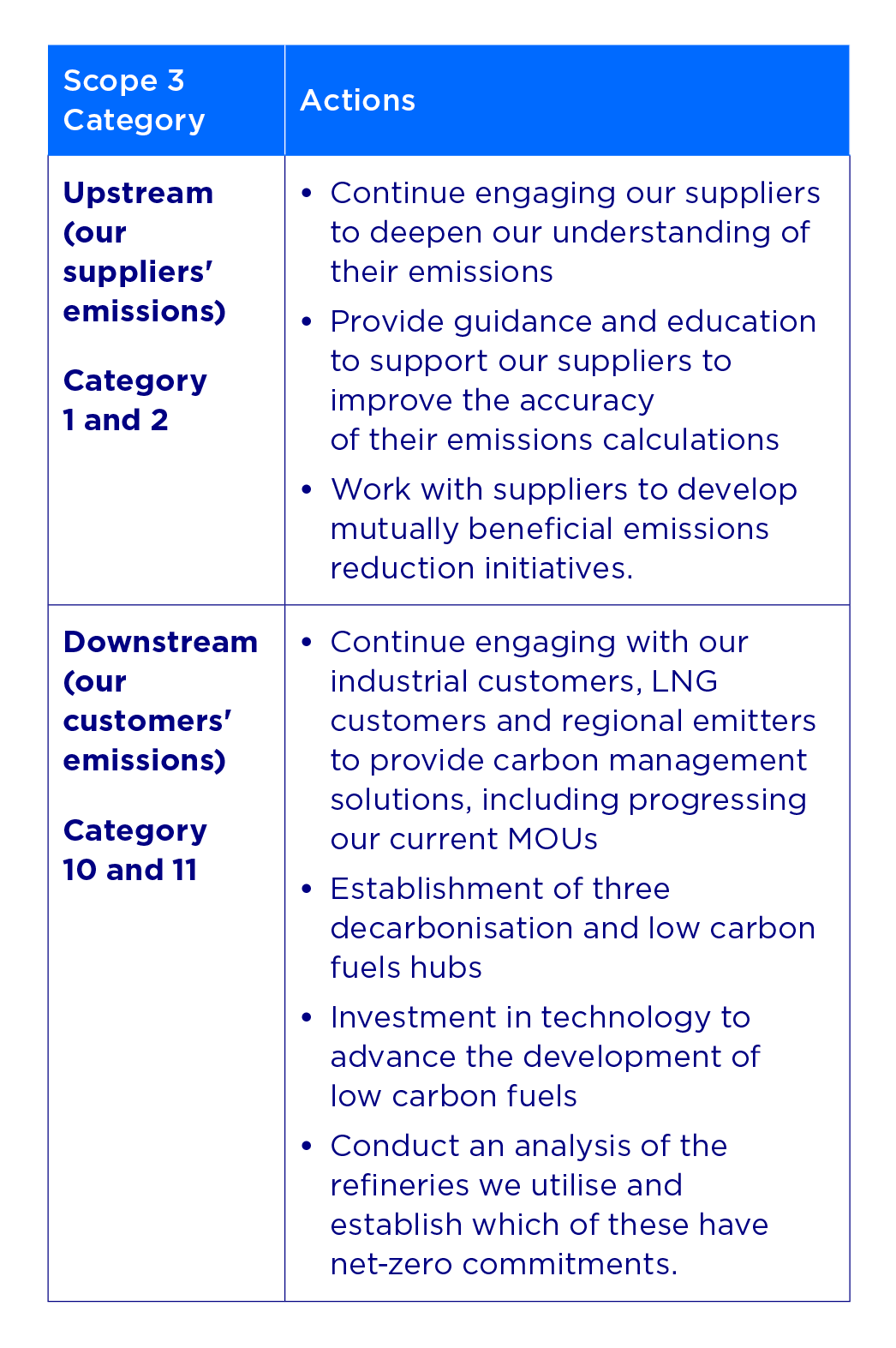
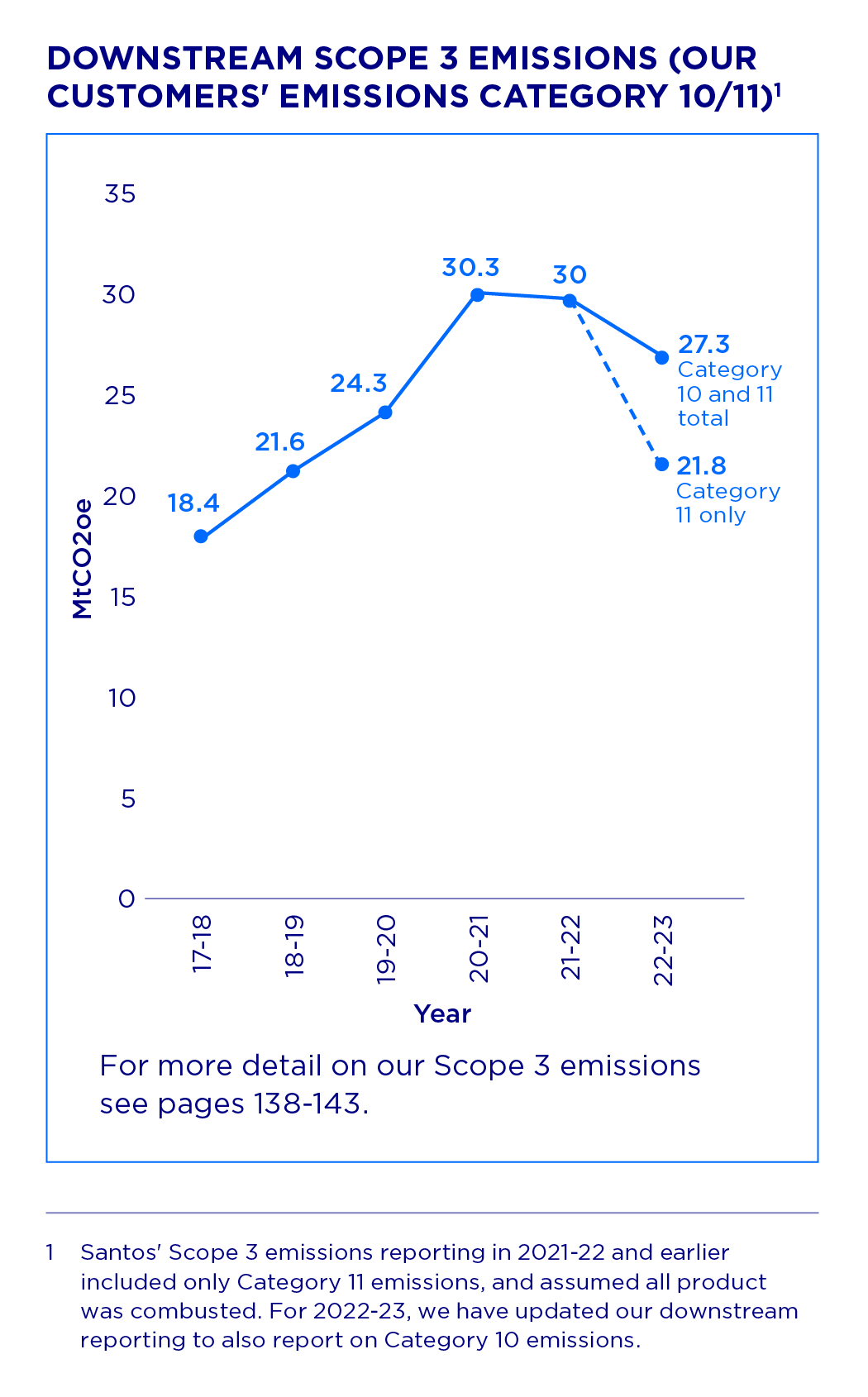
Methane and flaring
Methane is recognised as a powerful greenhouse gas and air pollutant, contributing to 30 per cent of current warming.* Reducing methane emissions is a key focus area for Santos. We continually review and monitor our methane emissions and recognise they comprise of about nine per cent of our total Scope 1 and 2 emissions.
Through our methane surveys, ongoing assessment, and preventative activity we can report that:
- Our 2023 methane emissions were 6 per cent lower as compared to 2022, including,
- An 8 per cent reduction in emissions from flaring and venting activity
- A 4 per cent reduction in fugitive methane emissions
*Global Methane Pledge 2023. Highlights from 2023 Global Methane Pledge Ministerial. https://www.globalmethanepledge.org/news/highlights-2023-global-methane-pledge-ministerial.
Additional information
There is currently no globally accepted framework or criteria for oil and gas companies to demonstrate alignment with the goals of the Paris Agreement.* A number of global organisations, including the IPCC and IEA, publish scenarios which align with the temperature goals of the Paris Agreement, to limit global temperature rise by 2100 to well below 2 degrees Celsius and pursue efforts to limit the temperature increase to 1.5 degrees Celsius above pre-industrial levels.
These scenarios, including the IEA NZE, reach global Net Zero emissions in years ranging from 2044 to 2050.
As outlined in our Climate Transition Action Plan, Santos operates a strategic framework that aligns our capital allocation and long-term planning processes with our emissions reduction targets, including our Scope 1 and 2 net zero target to be achieved by 2040.
*The Science-based Targets Initiative is currently not accepting commitments or validating targets for companies in the Oil & Gas sector.
Our emissions reduction activities are based on a hierarchy of avoidance, reduction and offset.
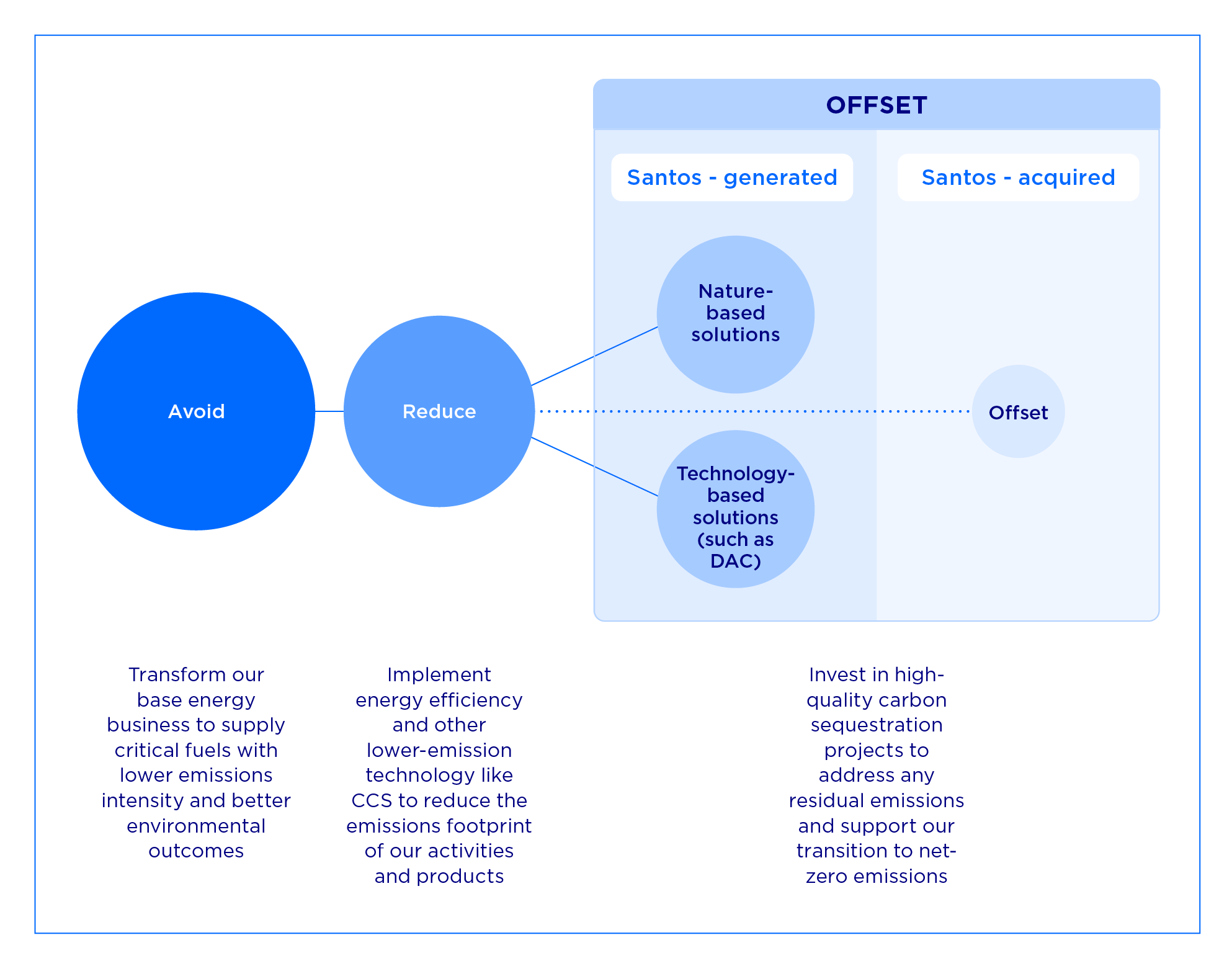
Under a range of different potential future scenarios where global temperature increase is limited to 1.5 degrees Celsius, natural gas remains an integral part of the energy mix out to 2050.
Our approach is to strike the right balance between disciplined and phased spending on major projects to meet global energy demand, while also investing in innovative energy solutions that align with the energy transition.
Following the release of the 2023 Sustainability and Climate Reports, Santos sought feedback from investors and investor groups on our decarbonisation strategy, targets and Climate Transition Action Plan.
The table below outlines the key themes raised by shareholders and the steps taken to address, or otherwise explain our rationale, in response to this feedback.

